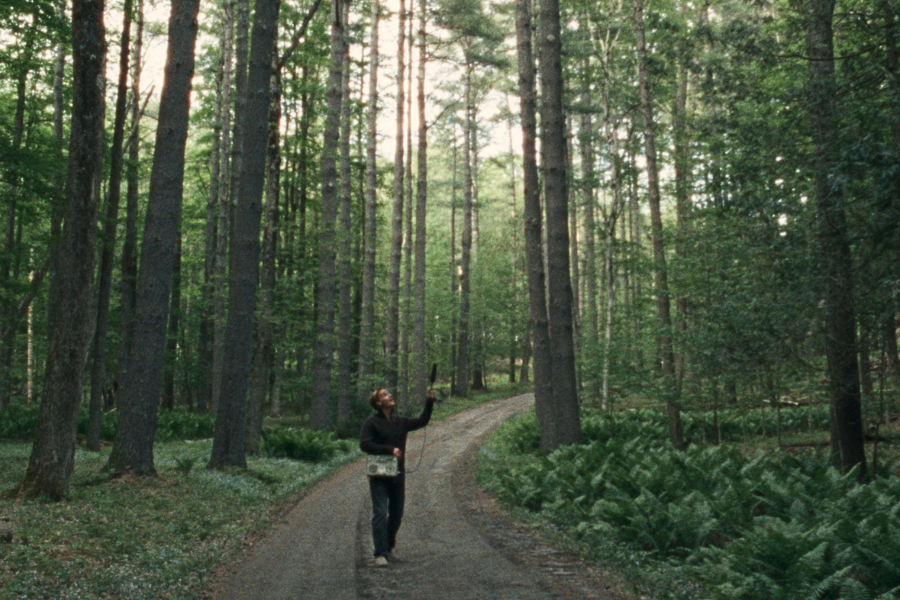We often find joy in unexpected places, and “Allen Sunshine,” the debut film by NYU alum Harley Chamandy, beautifully captures this sentiment against the backdrop of grief and isolation.
The film follows Allen (Vincent Leclerc), a famed music mogul who retreats to a small lakeside cabin after his wife passes away. Allen’s journey develops as he uncovers the warmth of unexpected friendship while fishing with Dustin (Miles Phoenix Foley) and Kevin (Liam Quiring-Nkindi), who spend their summers on the lake. Their companionship becomes a source of comfort and healing and helps Allen rediscover life’s simple pleasures and the subtle but profound power of connection.
Set against the leafy Canadian wilderness, “Allen Sunshine” artfully combines themes of loss and renewal. As Allen grapples with the absence of his late wife, he finds solace in nature and the companionship of the two local boys. Their playful interactions, like fishing, cooking and making music, serve as an all-encompassing reminder of the persistence of joy even under the weight of grief.
Allen didn’t always embrace the looming instabilities of the journey. He experiences waves of grief during a dinner date he had with a prospective love interest, where he breaks down into tears after a bottle of wine. But conversely, he finds happiness in solitude, producing electronic music and boating on the lake nearby. Since moving, the only companion he retained was his black Great Dane, Sully, who is always by his side throughout the film’s first act. Allen doesn’t interact with many other characters in the film besides Dustin, Kevin, a flirtatious lady friend named Jocelyn (Catherine Souffront Darbouze) and a produce delivery driver named Bill (Joseph Whitebird).
Shot on 16mm film, Chamandy’s directorial debut exudes a warm, nostalgic aesthetic that complements the story. The film stock’s grainy texture enhances the Canadian wilderness’ woody beauty, creating an optical harmony that mirrors Allen’s emotional progress. The cinematography captures the serenity of the lakeside setting, from the gentle lapping of waves to the dappled sunlight streaming through the trees. Each scene’s noninvasive framing is an introspective journey into mundanity. Cleverly utilizing the wooden structure of the cabin to frame the solitary scenes nudges Allen’s chosen isolation to the forefront. As he expands his circle, bringing in the boys to make music and cook, this framing becomes less noticeable, and scenes are spacious and airy.
Composer Ethan Rose’s soundscape gives Allen’s inner world a melody. The nature sounds, interwoven with ambient electronica, allow Allen to create a sonic tapestry that reflects his evolving emotional state. Allen’s early days of mixing and producing music are deeply introspective, almost meditative. In the isolation of his makeshift studio, he becomes a silent observer of his thoughts and feelings, using sound as an outlet for self-expression. The moments where he mixes and produces music tend to be solitary, but once he forms a bond with Dustin and Kevin, music making becomes a collaborative activity. Each session becomes an unspoken dialogue between friends, as Dustin’s casual presses of a synth key and Kevin’s dancing bring an organic spontaneity to Allen’s structured but genre-bending compositions.
“Allen Sunshine” is a slice-of-life film that stands out as a beacon of optimism. In an era where many films lean toward overly fantastical and dystopian themes, Chamandy’s film offers a humanistic perspective on resilience and healing in an essential moment. To Chamandy, even the simplest acts of kindness and connection can reignite the light that was once blown out.
“Allen Sunshine” is available for streaming on all platforms.
Contact Chloe Haack at [email protected].






















































































































































